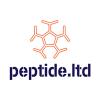What are some of the potential benefits of the use of neurofeedback in healthy individuals? Is it limited to concentration, or can it be used to enhance more aspects of cognition? If you had to roughly quantify the increase you have experienced in certain areas, say percentage-wise, what would it be?
I think that all of the regulatory things it affects to remediate challenges also can be affected in "typical" brains. E.g. you can increase vigilance, or calmness, or response inhibition, or specific functions, perhaps.
And I have personally experienced a great deal - I don't know about "percent", because sometimes changes are gradual and subtle, and sometimes discontinuous and shocking. I trained an outlier on my QEEG (frontal midline theta) not really knowing if / what particular quirk of mine or normal function it might perturb.
Usually training produces a small effect when you try a new protocol, and if you don't repeat it several times the effect will be transient. After that FMT down-training, I was really tired for a day or so (in my legs, oddly). And then about two weeks later I had to go buy a nail-clipper. I'd spontaneously stopped biting my nails. I *didn't notice* the change in behavior until my nails started clicking on the keyboard. I'd probably been struggling with that habit for 20 years or more.
In contrast, I did about 18 "SMR" (rewarding 12-15 Hz on the sensiormotor strip) sessions on the central motor strip, and went from being totally functional but still "adult adhd" - e.g. motorically restless and a bit interrupty - to having no problems calmly inhibiting my responses whenever I noticed it was necessary or just felt like it, and gained a bit more stability in focus when i needed, too.
I've done a few courses of SMR training since. I've also done a lot of meditating over the years (therevada / insight / dharma punx ), and to me, a course of SMR (12~24 sessions) feels like nothing so much as getting a few weeks into a good daily meditation practice, or a good long day or two in a meditation retreat. The stability, spaciousness, focus, and clarity that come from vipassana/samatha underscore that they are basic attention regulation techniques.
Even if you are "typical" or "normal", it might be argued that a meditation practice will strengthen and improve the mind. It certainly
spares the brain from age-related cortical thinning in some areas, including executive. NFB might be considered useful in the same way, at the very least. We also know that both SMR training and mindfulness meditation can offset or eliminate ADHD to a very large degree, and it's reasonable to assume they are affecting some of the same resources.
Consider - even in "normal" attention regulation, it's not "static", or monolithic... not only attention, but mood, mental energy / fatigue, etc... You ebb and flow in resources, in ability to sustain attention, multitask, keep inhibiting the proper (early / wrong) responses, not become irritable, not become anxious, stay vigilant...
I would expect (guess) that NFB would "move you up" a standard deviation if normal, or maybe half, if you are superior in function now. I've seen it move dysregulated attention "up" in scores 2-3 SDs, routinely (making many ADHD kids "above" typical after training). But more importantly, nfb may get the "machine" regulating a bit better, so it will be more *consistently* performant under varying load and challenge.
There are plenty of anti-aging applications too, for neurofeedback - some recent work on training up peak alpha frequency in elders to restore spatial attention alerting / reaction time that had slowed (as alpha slowed in aging). Improved the group's performance on VR tests of driving, iirc. I've seen it presented a couple of times at ISNR, but cannot remember whose work it is at this moment. I might need more nootropics.
Edited by salamandyr, 04 July 2013 - 04:23 AM.


















































